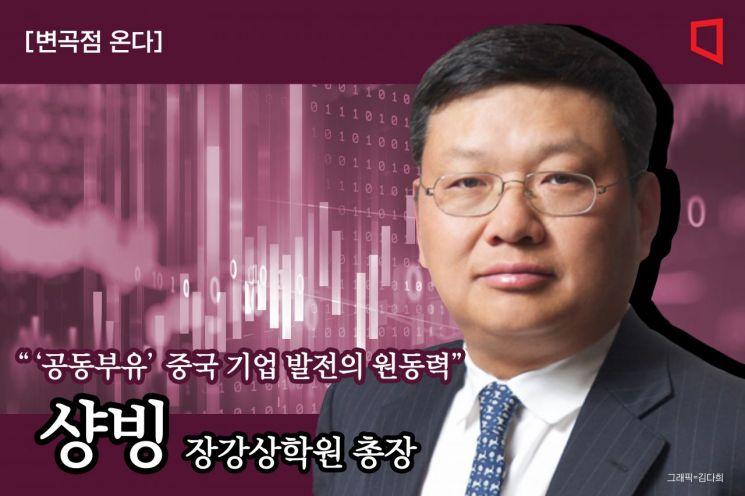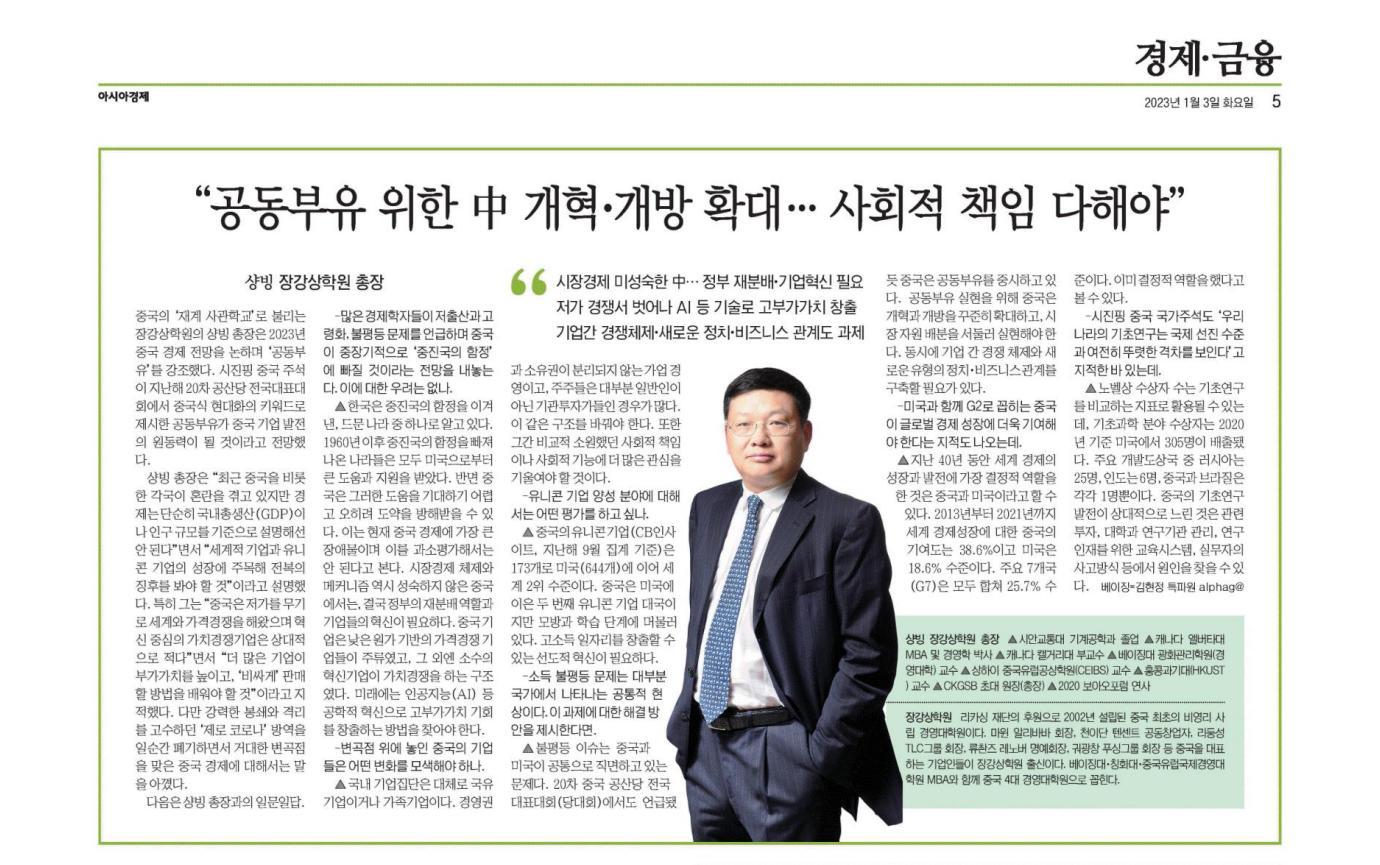Xiang Bing, Founding Dean of Cheung Kong Graduate School of Business, China’s leading business school, spoke with Asia Business Daily (https://www.asiae.co.kr/), an economic newswire in South Korea, on China’s economic outlook for 2023. Xiang emphasized that “common prosperity”, a concept highlighted by Chinese President Xi Jinping at the 20th National Congress of the Communist Party, will be the driving force behind the development of Chinese enterprises and a critical component of China’s efforts to modernize its economy.
According to Dr. Xiang, “economic success should not solely be defined by GDP or population size. Instead, we should pay attention to factors such as the growth of unicorn companies and opportunities for innovation.” He further noted, “China has been competing with the rest of the world through low prices, but relatively few value-added companies focus on innovation. It is crucial for companies to learn how to enhance the value of their offerings and sell their products at a premium price.”

– Many economists have mentioned the challenges posed by a low birth rate, aging population, and inequality, suggesting that China could become a middle- and long-term developing country. What are your thoughts on this issue?
Korea is known as one of the few countries that has overcome the middle-income trap. Significant progress has been made over the past 20 years in areas such as social, health, cultural and educational development as well as income. However, since 1960, countries that escaped the middle-income trap received extensive aid and support from the United States.
In contrast, China may face difficulties in receiving similar support and may encounter challenges in its development process. The middle-income trap is currently the biggest challenge facing China’s economy, and should not be underestimated. In China, where the market economy and mechanisms are still in their early stages, government plays a crucial role in redistributing resources and fostering innovation within enterprises.
Chinese companies have historically relied on low cost-based price competition, while only a small number of companies competed on value. In the future, we need to find ways to create high-value-added opportunities through innovations such as artificial intelligence (AI).
– What kind of transformation should Chinese companies that are at an inflection point seek?
Domestic business groups in China mainly consist of state-owned enterprises or family-run businesses. There is a relative shortage of companies that adopt a modern system of professional management comparable to well-known global companies. Family businesses lack a clear separation between management and ownership, and most of them are managed by institutional investors. In addition, enterprises need to focus more on social responsibility, which they have previously neglected.
– What is your perspective on the topic of fostering unicorn companies?
The number of unicorn companies in China (according to CB Insights as of September 2022) is 173, ranking second in the world after the US (644). The United States has a history of nurturing unicorns through original innovation with companies such as Google, Facebook, Uber, and Netflix. Although China is the second largest unicorn nation after the United States, it is still considered to be in the imitation and learning phase. We need more leading innovations that can create high-paying jobs.
– Income inequality is a common phenomenon in most countries. Can you suggest a solution to this problem?
Inequality is a problem that both China and the United States face. As mentioned at the 20th National Congress of the Communist Party of China, the concept of common prosperity is highly valued by the government.
Developed countries such as Switzerland, Germany, France, Japan, Australia, and Canada serve as examples of nations that have achieved common prosperity. They all share two characteristics: a highly developed market economy and a comprehensive social security system. To attain common prosperity, China must steadily advance reform and openness, and accelerate the distribution and redistribution of market resources. At the same time, it is important to establish a system of competition between companies as well as to build new forms of political and business relationships.
– It has been suggested that China, which is regarded as one of the G2 countries alongside the US, should contribute more to global economic growth. What is your view on this issue?
It can be said that over the past 40 years, China and the United States have had the most significant impact on the growth and development of the global economy. China’s contribution to global economic growth from 2013 to 2021 stood at 38.6%, compared to 18.6% for the United States, and the combined contributions of the seven major countries (G7) account for 25.7%. These figures demonstrate the significant impact that China has had on the world economy.
– Chinese President Xi Jinping pointed out that ‘There is a clear gap in China’s basic research compared to the internationally advanced level’.
The number of Nobel Prize winners can be used as a benchmark for comparing basic research capabilities, and as of 2020, the United States produced 305 winners in basic science. There were 89, 57, 35, and 18 winners from the UK, Germany, France, and Japan, respectively. Among the major developing countries, Russia had 25, India had six, and China and Brazil had only one each by 2020. The relatively slower growth of basic research in China can be attributed to factors such as investment, the management of universities and research institutes, education for research talent, and the mindset of practitioners.
